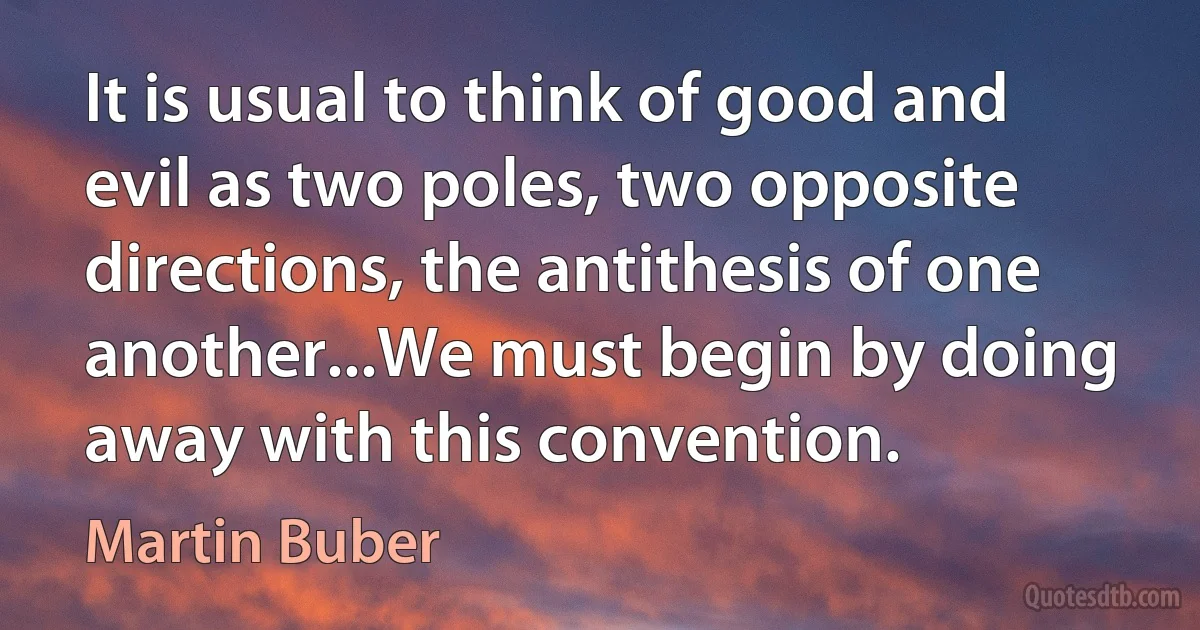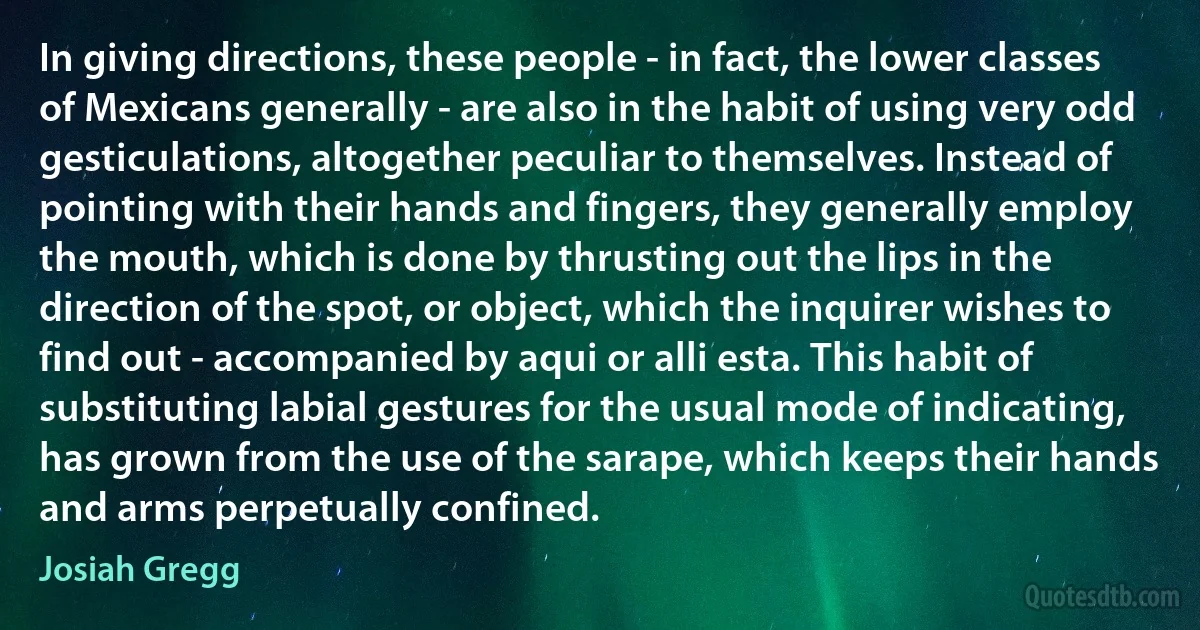Usual Quotes - page 23
Wiko, a French phone company, went from concept to company when the founders were shopping for parts in Shenzhen (as one does). Wiko had trouble raising money-few investors believed a new European phone company could succeed-so they took an investment from the Chinese manufacturer Tinno Mobile. Wiko is thus mostly Chinese, both owned and supplied by Tinno, but given its thin veneer of French design and marketing it looks like a local firm to the French. The resulting excitement over Wiko as a homegrown business helped them to become the second largest phone vendor in France (after Samsung, as usual). This preserves the pattern of "designed elsewhere, made in China,” but with the twist that ownership, not just sourcing and manufacturing, has now moved to China as well.

Clay Shirky
We still do not yet know where the drive for truth comes from. For so far we have heard only of the duty which society imposes in order to exist: to be truthful means to employ the usual metaphors. Thus, to express it morally, this is the duty to lie according to a fixed convention, to lie with the herd and in a manner binding upon everyone. Now man of course forgets that this is the way things stand for him. Thus he lies in the manner indicated, unconsciously and in accordance with habits which are centuries' old; and precisely by means of this unconsciousness and forgetfulness he arrives at his sense of truth.

Friedrich Nietzsche
e idea of a personal God is quite alien to me and seems even naive. However, I am also not a "Freethinker" in the usual sense of the word because I find that this is in the main an attitude nourished exclusively by an opposition against naive superstition. My feeling is insofar religious as I am imbued with the consciousness of the insuffiency of the human mind to understand deeply the harmony of the Universe which we try to formulate as "laws of nature." It is this consciousness and humility I miss in the Freethinker mentality. Sincerely yours, Albert Einstein.

Albert Einstein
The idea of a personal God is quite alien to me and seems even naive. However, I am also not a "Freethinker" in the usual sense of the word because I find that this is in the main an attitude nourished exclusively by an opposition against naive superstition. My feeling is insofar religious as I am imbued with the consciousness of the insufficiency of the human mind to understand deeply the harmony of the Universe which we try to formulate as "laws of nature."

Albert Einstein
The NTC should start cracking the whip and fix the system immediately. It cannot be business as usual anymore. Let's do away with the mentality of just accepting the present situation and start doing something about it. he problem is that government agencies that are supposed to monitor these telcos and help consumers don't seem to feel the urgency of the situation.

Francis Escudero
And we've had four more years pass where the age cohort that is most Democratic and most pro-statist, are those people who turned 21 years of age between 1932 and 1952--Great Depression, New Deal, World War II--Social Security, the draft--all that stuff. That age cohort is now between the ages of 70 and 90 years old, and every year 2 million of them die. So 8 million people from that age cohort have passed away since the last election; that means, net, maybe 1 million Democrats have disappeared--and even the Republicans in that age group. [...] You know, some Bismarck, German thing, okay? Very un-American. Very unusual for America. The reaction to Great Depression, World War II, and so on: Centralization--not as much centralization as the rest of the world got, but much more than is usual in America. We've spent a lot of time dismantling some of that and moving away from that level of regimentation: getting rid of the draft.

Grover Norquist
By further reflecting that the clearest evidence would be requisite to make any sane man believe in the miracles by which Christianity is supported,-that the more we know of the fixed laws of nature the more incredible do miracles become,-that the men at that time were ignorant and credulous to a degree almost incomprehensible by us,-that the Gospels cannot be proved to have been written simultaneously with the events,-that they differ in many important details, far too important as it seemed to me to be admitted as the usual inaccuracies of eye-witnesses;-by such reflections as these, which I give not as having the least novelty or value, but as they influenced me, I gradually came to disbelieve in Christianity as a divine revelation.

Charles Darwin
At the present day the most usual argument for the existence of an intelligent God is drawn from the deep inward conviction and feelings which are experienced by most persons. But it cannot be doubted that Hindoos, Mahomadans and others might argue in the same manner and with equal force in favour of the existence of one God, or of many Gods, or as with the Buddists of no God. There are also many barbarian tribes who cannot be said with any truth to believe in what we call God: they believe indeed in spirits or ghosts, and it can be explained, as Tyler and Herbert Spencer have shown, how such a belief would be likely to arise....This argument would be a valid one if all men of all races had the same inward conviction of the existence of one God; but we know that this is very far from being the case. Therefore I cannot see that such inward convictions and feelings are of any weight as evidence of what really exists.

Charles Darwin
Bobbie sighed. "You know, a thousand of those stars out there are ours now. That's like, what? Three ten-thousandths of a percent of our galaxy? That's what we're fighting over.”
"You think?”
"You don't?”
"Nah,” Alex said. "I figure we're fighting over who gets the most meat from the hunt and first access to the water hole. Mating rights. Who believes in which gods. Who has the most money. The usual primate issues.”
"Kids,” Bobbie said.
"Kids?”
"Yeah. Everyone wanting to make sure their kids have a better shot than they did. Or than everyone else's kids. Something like that.”
"Yeah, probably,” Alex said.

Daniel Abraham
Sverdlov Hall was already nearly full...The provincial elite were all there. And it was all the usual things: people kissing each other and shouting greetings across the rows of seats, chattering about the snow and the harvest prospects and generally feeling themselves to be masters of their fate. In all the cacophony I didn't hear the name of Andropov mentioned once, not anything said about his death. At twenty minutes to eleven the hall hushed. The waiting began. With each minute the tension rose and the atmosphere felt charged with electricity...The tension reached a climax. All eyes turned towards the door...Who would come through it first? At precisely eleven, Chernenko's head appeared in the doorway. He was followed by Tikhonov, Gromyko, Ustinov, Gorbachev and the rest. The delegates' reaction was silence.

Konstantin Chernenko
He made a face. "Arguments, speculation-conspiracy theories of all kind. The usual thing, right? No one is ever simply assassinated anymore. Ever since your Kennedys, it is always a matter of how many stories you can invent to explain the same body of facts. That is the great pleasure of conspiracy theory-not explanation, but narrative. It is like Scheherazade.”.

Kim Stanley Robinson
The Labour Party cannot make up its mind whether to treat the Liberal plan as a freak or to claim its paternity. Mr. Thomas has said it is an absurd abortion, but Mr. Henderson says it is the child of the Labour Party. Mr. MacDonald, as usual tries to have it both ways. He says-often in the same speech-"This is a stunted thing." Then looking at it fondly, he says, "This is my child."

David Lloyd George
Even if there is only one possible unified theory, it is just a set of rules and equations. What is it that breathes fire into the equations and makes a universe for them to describe? The usual approach of science of constructing a mathematical model cannot answer the questions of why there should be a universe for the model to describe. Why does the universe go to all the bother of existing?

Stephen Hawking
To be sure, the usual suspects are bound to oppose this civilizational viewpoint. With their studied superficiality, the secularists view India as a hodge-podge of "communities”, of which a very recent one, concocted by the "Orientalists”, is Hinduism. Just as I finish this article, my attention is drawn to a French magazine celebrating the appointment of an Indian secularist historian to the Collège de France with an interview. There, he speaks out against the very notion of a Hindu civilization. The whole is not real, only the fragments are. The notion of an over-arching civilizational unity and long-term continuity may be obvious in China, and get applause there, but in India it is "communal!” (Ch 18)

Koenraad Elst
I seized the sheet of paper; the lines were written upon it in characters rather larger than usual. How it shook in my hand while I read these words: "Forgive me, Marie. I was suffering too much. I wanted to be done with it." And he had had the strength to affix his signature!
So then, his last thought had been for her. In the brief moments that had elapsed between my blow with the knife, and his death, he had perceived the dreadful truth, that I should be arrested, that I would speak to explain my deed, that my mother would then learn his crime - and he had saved me by compelling me to silence.

Paul Bourget



